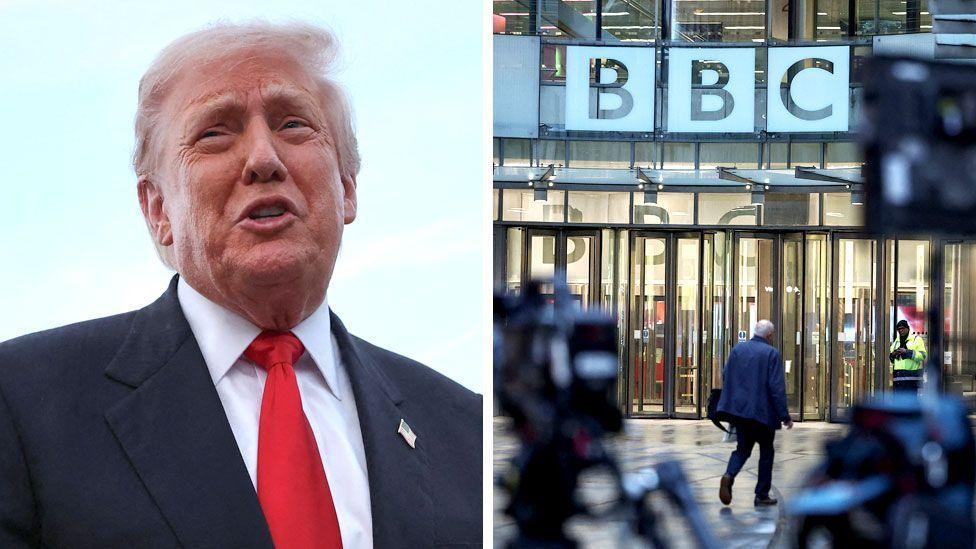BBC chairman survives MPs' questions – but crisis at corporation is not over
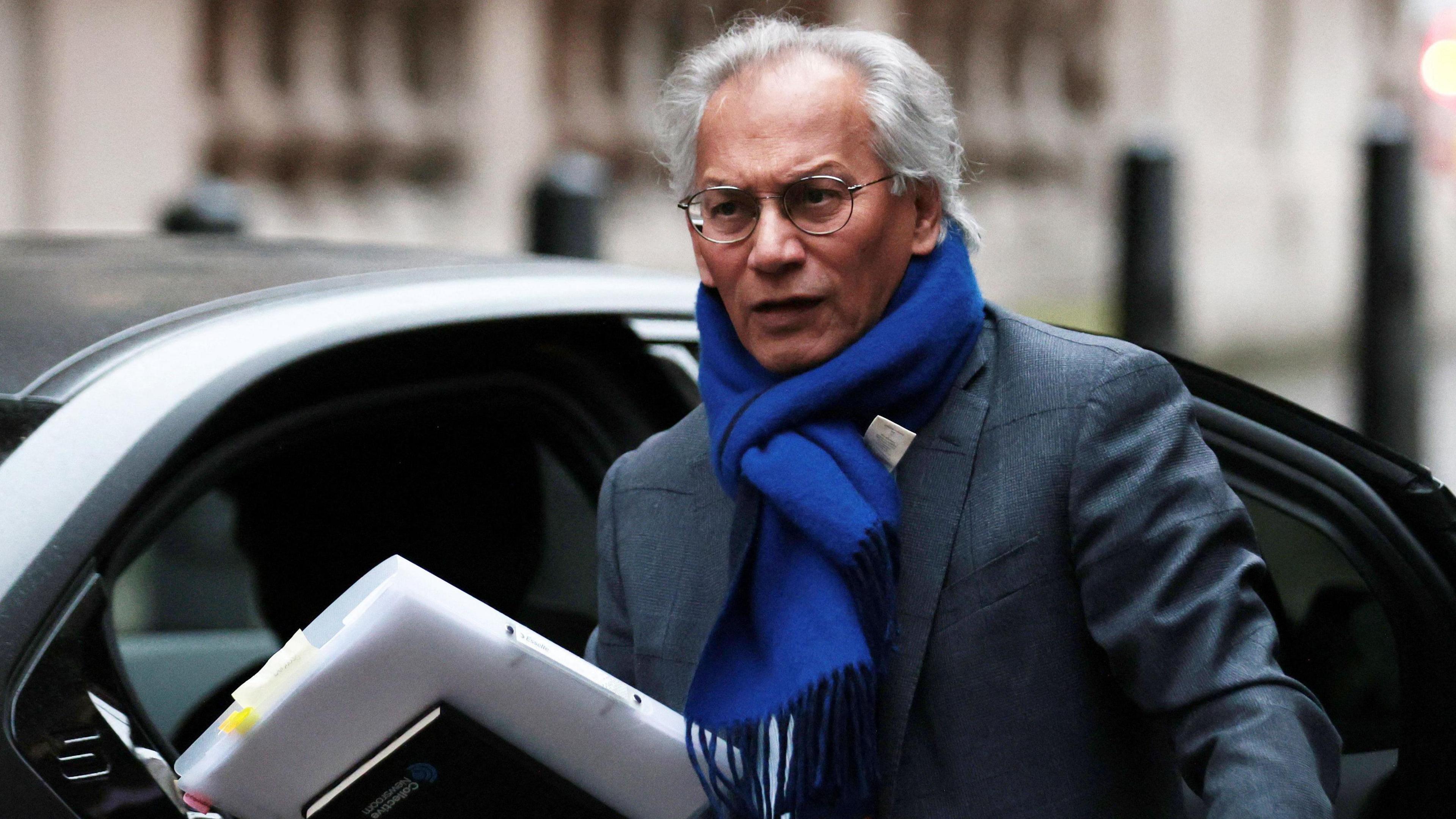
Samir Shah says his job is now to "steer the ship"
- Published
If you tuned into the Culture, Media and Sport committee hearing on Monday expecting a gladiatorial showdown, you'd have been left wondering where the swords were.
There have certainly been occasions when Select Committee hearings have felt worthy of Rome's Colosseum, with MPs grand-standing and landing blows.
After two turbulent weeks of a BBC crisis, with the pressure on him, Samir Shah looked nervous as he began his session in front of MPs.
But within 10 minutes or so, the chairman appeared to relax. That may have been the moment when he realised these MPs had not come equipped for mortal combat. There were to be no killer blows.
The key thing for Shah and the BBC was for him to demonstrate that he's got a grip on the corporation. He was asked twice if he should have resigned. He said his job is now "to steer the ship" – and begin the search for the next director general.
Caroline Thomson, a fellow board member sitting next to Shah, said he had the unanimous support of the board.
She neglected to mention the resignation of the board member Shumeet Banerji on Friday, citing "governance issues".
That obviously added to the pressure on Shah ahead of this committee appearance – and this is the part of his evidence where he came alive.
Although he praised Banerji, he pushed back on the sense the ex-board member hadn't been consulted about events leading up to the resignations of director general Tim Davie and CEO of News Deborah Turness.
Shah claimed – twice – that he had had a 26-minute conversation with Banerji.
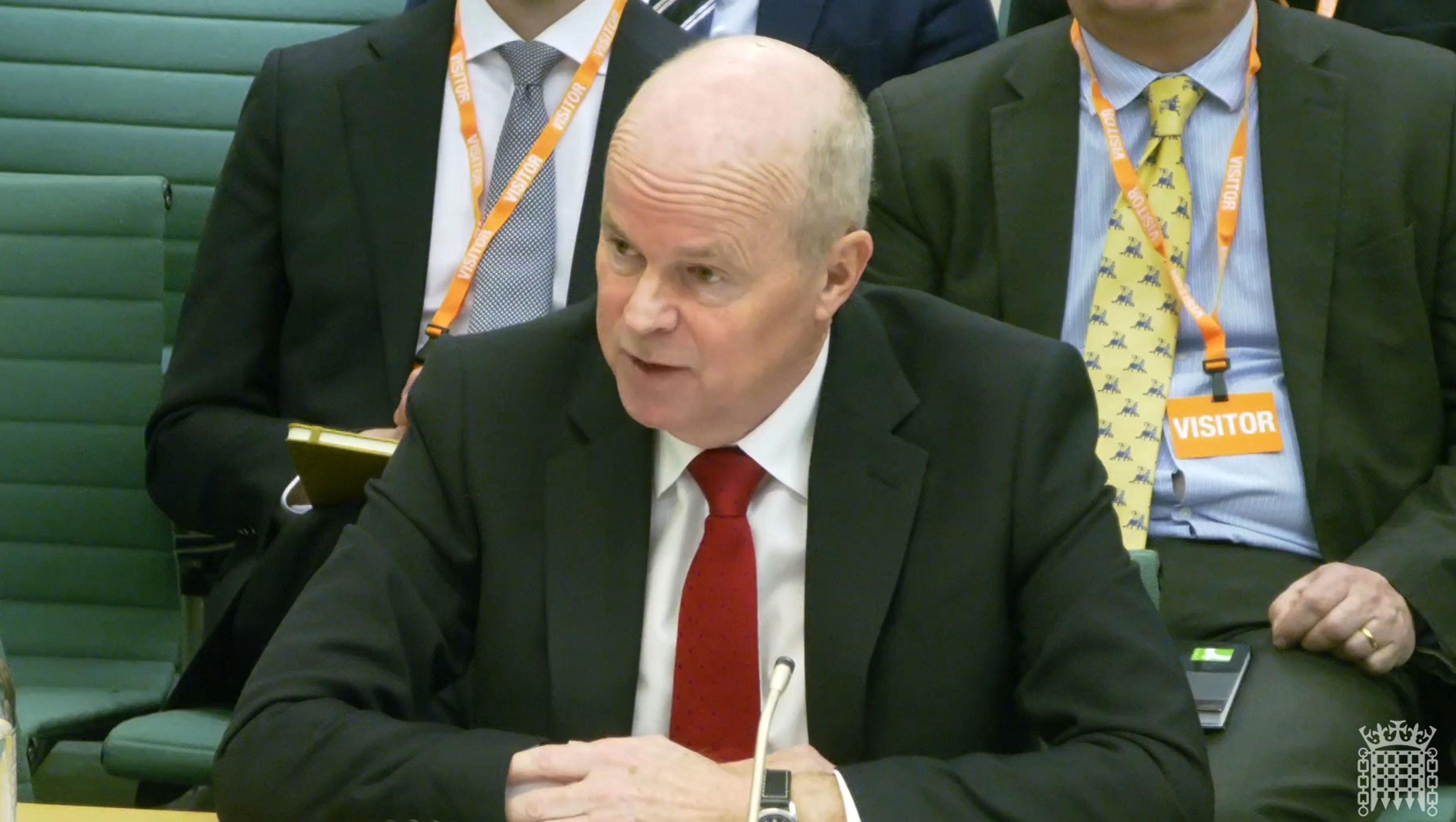
Sir Robbie Gibb said the idea of a "politically motivated coup" at the BBC was "ridiculous"
The BBC chairman went into his session with MPs in a fairly weak position – accused of losing grip over his board.
He appears to have come out stronger. If the BBC wanted to show unity, it succeeded. After two weeks where we have heard about divisions at the very top (including claims of a fracture between the news division and the board as well as allegations that the board itself is divided), the three BBC board members presented a united front.
It certainly didn't make riveting TV.
BBC chairman vows to stay to 'fix' problems
- Published1 hour ago
Five key moments after MPs question top BBC figures
- Published2 hours ago
Media regulator and former BBC journalist Richard Ayre didn't mince his words, not least about the session's long running time.
"About four hours ago - it feels like four years ago - I began by saying this felt likely to be a bit like an episode of The Traitors, and the question would be who would be the next person to bite the dust," he told BBC News when the session ended.
"I think after we've sat through these two interrogations by MPs, the answer is there will be no banishing this evening and they'll both be down to breakfast tomorrow morning.
"Over the last two weeks we've had across the media countless reports of tensions within the BBC board... And yet the picture we got... today was all peace, all light - everybody has full confidence in everybody else."
'Watergate, it was not'
Journalist and former BBC presenter Andrew Neil was equally unimpressed.
"My immediate thought is I've spent more interesting afternoons watching paint dry. I mean, this is a low-level committee. The Watergate hearings, it was not," he told BBC News.
"The quality of question was appalling, it lacked any forensic approach, they're uninformed, some of them can barely string six words together in a coherent sentence.
"Those who are hoping to get the scalps of the chair, Samir Shah, or... the non-executive director, Robbie Gibb, or to discredit Michael Prescott, the author of the report that's caused all the trouble - they are going to be deeply disappointed because nobody really laid a glove on them.
"And if the BBC was worried that this could have been the start of a process of its demise, then it should have a large gin and tonic tonight, because nothing happened that did any damage whatsoever."
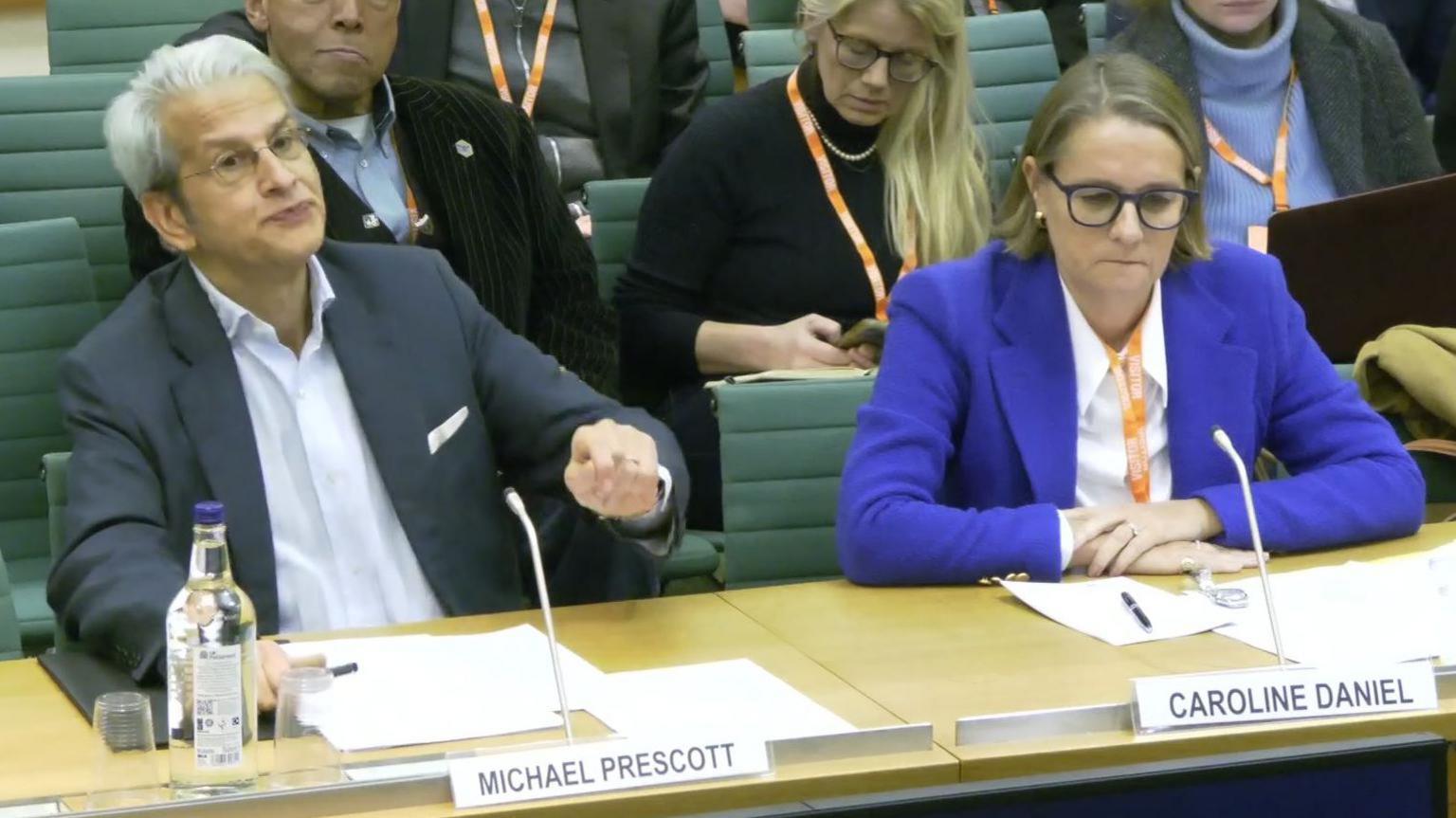
Former BBC editorial advisors Michael Prescott and Caroline Daniel were also questioned by MPs
But we got a few insights.
Shah was asked about the vacuum created by his failure to apologise for the misleading Donald Trump edit once it was made public in the Telegraph newspaper.
He suggested he hadn't accepted the apology being suggested by news executives, because it wasn't sufficient.
Caroline Thomson sitting beside him described there being a "continuing and sharp difference of opinion between the chairman and me and others on the board with the director of news". She said that was around whether to apologise for the edit or whether the impact of the edit had given a misleading impression. Some board members felt it had.
We also heard for the first time from Sir Robbie Gibb, the former BBC executive and Downing Street head of communications under Theresa May, who's one of the political appointees to the board.
He has been accused by some of political interference.
On Monday, he denied that - saying he's become weaponised, and that he has impartiality in his bones.
And when Sir Robbie was asked directly whether there had been a politically motivated coup, as some people had suggested, he said it was a ridiculous charge, complete nonsense and offensive to board members.
Whether that is enough to quell the critics is another matter.
Michael Prescott, whose leaked memo sparked all this, also spoke out for the first time.
He said he didn't think the BBC is institutionally biased. But the Committee didn't get to the bottom of the accuracy of his claim about systemic problems in the way the BBC works. That still hangs over it.
Caroline Daniel, the other former advisor who sat in all the same meetings as he did, didn't come to the same conclusion. She wasn't asked a huge number of questions, but she was pointed in her answers.
She said the BBC takes issues of impartiality incredibly seriously. "That is why they are the most trusted news brand in the world."
To take a step back from this, every one of the people who gave evidence today professed huge support for the BBC.
But given the divisions and the mistakes that have been laid bare over the past few weeks, which have prompted big resignations at the top of the BBC, on top of the legal threat from Donald Trump, this crisis is not over.
Shah lives to fight another day, but with the BBC under seige, another day will certainly come when another issue arises.
How the BBC works
Related topics
- Published2 hours ago
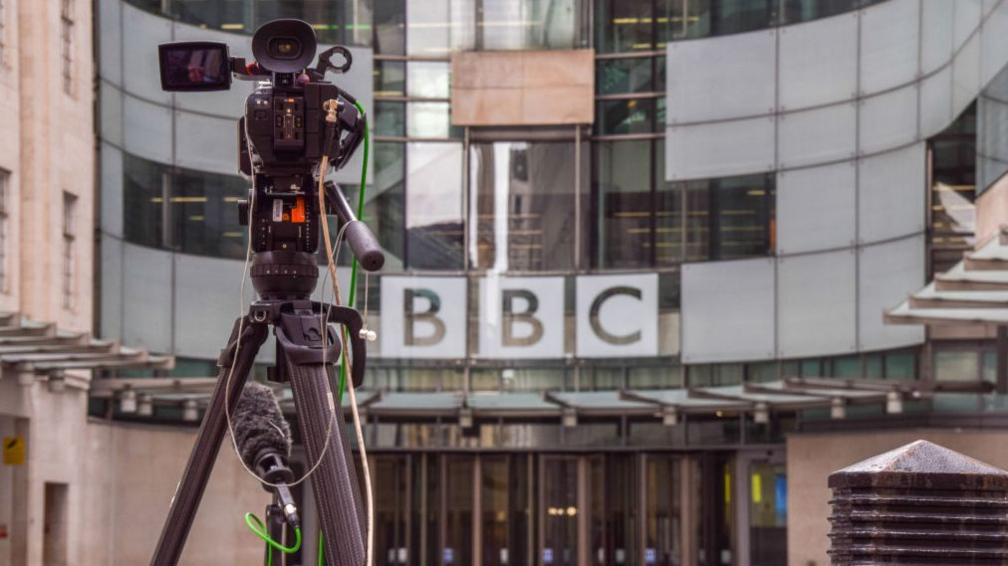
- Published15 November
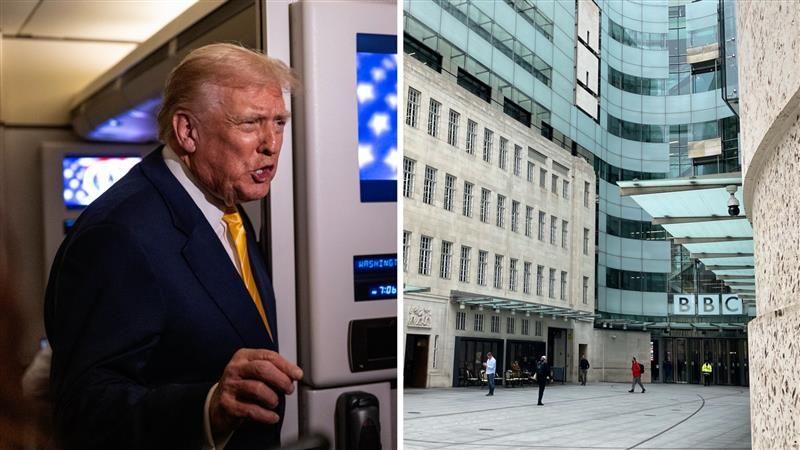
- Published14 November
